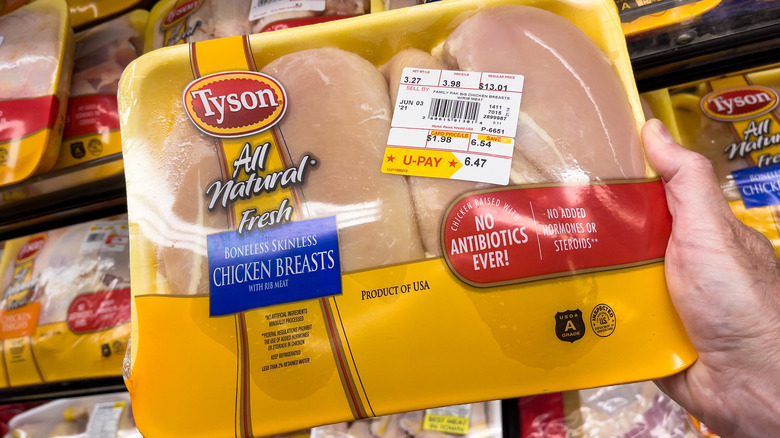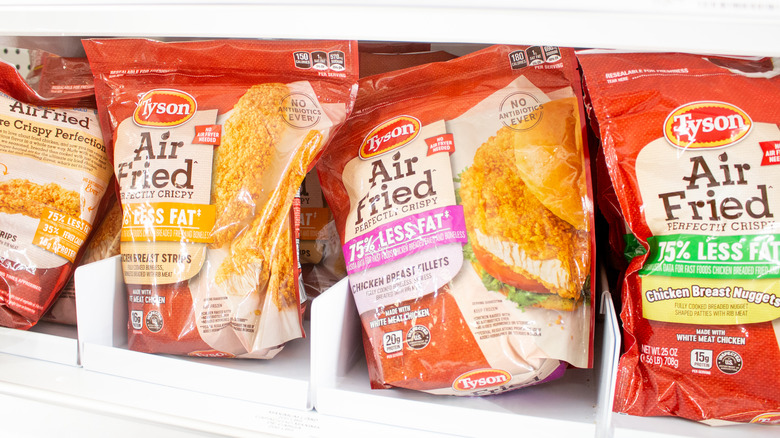Why Tyson Is Dropping 'No Antibiotics Ever' From Its Chicken Label
Tyson Foods will be dropping its long-held 'no antibiotics ever' claim from its chicken packaging, as reported by The Wall Street Journal. The brand will be pivoting instead to the less organic-sounding label, 'no antibiotics important to human medicine,' according to CNN.
Roughly 50% of all U.S. chicken farms utilize antibiotics to a certain degree with their poultry, mostly as a means of preventing chickens from contracting or spreading diseases to one another in their often overcrowded living spaces. While the use of antibiotics in chickens is not inherently unhealthy (for either chickens or humans), the drugs can inadvertently breed highly resistant bacteria that could, under specific circumstances, lead to infections in human beings.
Many health-conscious consumers in recent years have been quite judicious with their intake of foreign chemicals, pesticides, and antibiotics, leading some brands to ditch antibiotics entirely. Chick-fil-A's decision to go antibiotic-free was a big deal, for instance, as the chain switched to a fully antibiotic-free menu in 2019. Since then, many other companies have followed suit. However, recent risk assessments from the WHO suggest some antibiotics are helpful in staving off harmful viruses while having little to no impact on people, allowing for this newfound change in policy from Tyson Foods.
What kind of antibiotics will Tyson be using?
Tyson Foods plans to integrate antibiotics called ionophores into its chicken, impacting the sale of all the brand's fresh, frozen, and ready-made products on your supermarket shelves. Ionophores are primarily employed to halt and prevent the spread of coccidiosis, a disease that impacts chickens' digestive and intestinal health. The antibiotics thus make large, cramped chicken farms less likely to face large waves of illness.
True to Tyson Foods' newfound label, the antibiotic isn't known to have significant medical ramifications for humans, according to the most up-to-date information from the WHO. This transition from fully antibiotic-free chicken to the new 'no antibiotics important to human medicine' version is expected to be completed by the end of 2023.
For the average consumer, this change will have little to no impact. But those seeking to track every individual chemical and element that enters their body may want to do more research on the chicken business' evolving use of antibiotics — or perhaps they'll simply be forced to stick to the Chick-fil-A drive-through lane.

